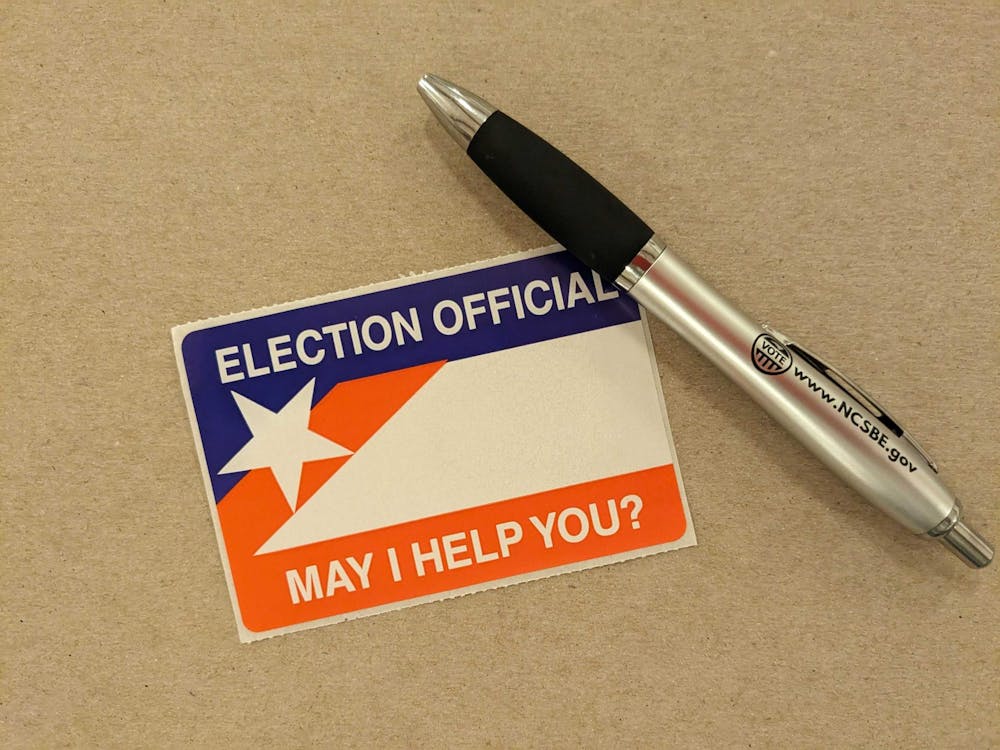Election day for poll workers begins before dawn at their designated polling precinct. For me, it was at 5:45 a.m. at a church a couple of minutes down the road from my house. Once the room is set up, pay sheets are signed, oaths are taken and it's time to wait until the polls open.
Election day is an important day for American politics, and whether it be a primary or general election, midterm or presidential year, poll workers are a necessity.
I’ve been a poll worker twice now, and it’s only a matter of time before I get an email requesting my help this November. Despite being a crucial role, local election officials often struggle to recruit poll workers — especially young ones.
This is not surprising. Youth engagement in politics is incredibly low. In 2022, only 23 percent of North Carolina voters ages 18-29 actually voted. In fact, many young voters are disillusioned about elections. This has led to apathy among the youth about politics in the country.
Additionally, a lot of Americans have low incentive to work at the polls. In North Carolina, a clerk — the average poll worker — gets paid around $200 for 14 hours of constant work, depending on the location. For many, that is too low to justify taking a day off work or school.
Yet, young people have the most to gain from participating in elections beyond simply voting. Being a poll worker gives younger voters a better perspective on the election process. Additionally, seeing people their age at polling precincts can be encouraging — going to a polling precinct can be intimidating when all the officials are 40 years older than you.
In both 2022 and 2024, I worked the poll books — massive binders full of stickers with voter information — and made sure people were who they said they were. In 2022, I was supposed to be a student assistant, a helper to the actual poll workers. I was only given real duties because they were understaffed.
By noon, it became apparent that there was a new challenge this year: photo ID requirements. Some loved it, some hated it. I received a score of comments throughout the day from people thrilled about the new requirement.
However, it didn’t stop the conspiracy theories. Election workers often face suspicion and harassment from voters, and in this day and age, comments about voter fraud and conspiracies are all but guaranteed. I have received a few in my time working the elections. While mine remained just comments, for many poll workers it can go beyond that.



